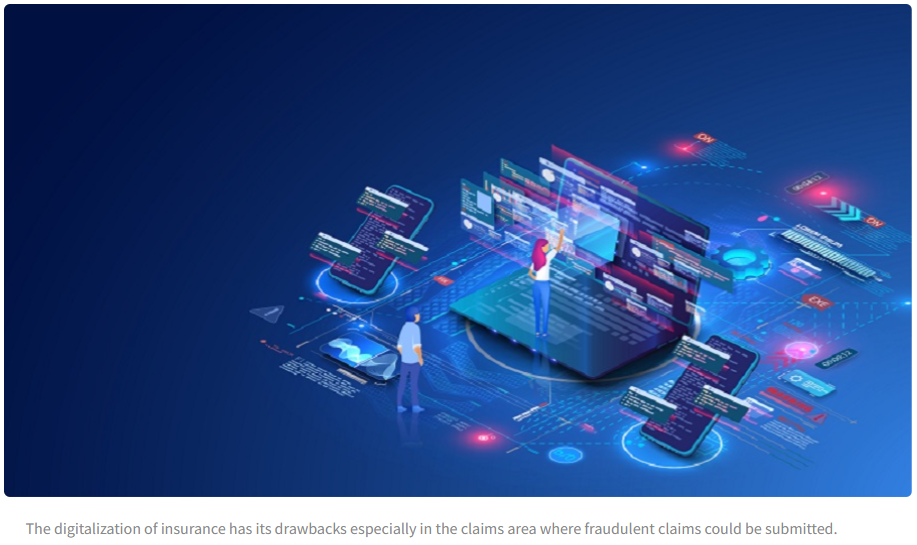Perceptions of the Insurance Industry
Most people in the USA own 19 pairs of shoes in average. People can queue up to 6 days to purchase the latest smartphone. But when it comes to insurance, people often don't take the time and effort to buy them
Why is insurance so different from other products? We buy insurance not because we love to, but because we have to. Indeed, most consumers don't see any value nor have any interest in insurance. Adding to this, they have very limited trust in insurance.
Meeting Customers' Needs Through Digitalization
Thanks to technological progress, digitalization has been used by many different industries to improve customer journey in various key moments like sales and servicing, to provide a more seamless customer experience. Naturally, this digital evolution has reached mainly younger consumers, as they are more open to new technology in an increasing digital world.
Starting from this background, many General Insurers have engaged a process of digital transformation in the 2010s to increase their range of products, with some success in their execution and implementation.
The initial supply chain, which was overall unattractive (bureaucratic, unclear and lengthy) has evolved towards a better customer-experience journey with greater channel reach - such as companies' websites, mobile applications and aggregators.

This digital evolution has created more opportunities and capabilities for General Insurers to offer better product permutations to their customers by proposing more options, add-ons, as well as bundles for highly- customized offerings.
For most of the General Insurance lines of business, this product differentiation has allowed them to move away from an almost constant price war between competitors, as products are now more difficult to compare with one another. However, some products like travel insurance (especially single trips) remain largely commoditized and often compared within aggregators websites.
Digitalization in general insurance is also driven by customers' demand for easy-to-use and convenient digital platforms, as is already the case for other industries such as airline companies.
Improving Operational Efficiencies
With increased digitalization of insurance processes, operational efficiency has also improved. For example, a change of address can be performed by the customers in a few minutes. The processes of claims verification and payment have also benefited from digitalization, even though insurance companies also have to keep a tight lid to avoid fraud.
The extreme example of operational efficiency created from insurance digitalization would probably be parametric insurance, which is a type of insurance contract that insures a policyholder against the occurrence of a specific event by paying directly a set amount based on the magnitude of the event, as opposed to the magnitude of the losses in a traditional indemnity policy.
For example, if you buy a parametric insurance product against flight delay and your plane is delayed, it will trigger your cover and the insurer may have already paid into your bank account before you land! This type of insurance is made possible with real time data that is usually publicly available (e.g. flights schedule). As real-time data becomes more readily available, the sale of parametric insurance will grow in the future.
Limitations of Digitalization
While there are benefits in digitalization of insurance, it is worth noting that abuses may also arise, notably in the claims area.
By focusing on making the claims processes as smooth as possible and paying the customers as fast as possible, some General Insurance companies may bypass some ground rules of claims controls, approving ineligible claims based on simple misleading photos sent by their customers. These cases can happen due to oversimplified processes
As a result, these companies might see the savings they made from efficient and straight-through processes wiped off by a couple of fraudulent claims. Furthermore, the "honest" customers would see their insurance premiums increase to fund the claims of the fraudulent customers. Known as "anti-selection", this happens when the customer conceals pertinent information about their lifestyle, occupation, or health to stay in a lower-risk group for lower rates.

Therefore, it is important for companies to use digital means wisely, keeping control of the basic processes in order to avoid fraud or any other derailing from the initial intentions of selling insurance policies and paying claims.
Charting the Course Towards Digitalization
The rise of technology and digital has already transformed the way insurance companies operate and interact with their customers in the last decade.
As this trend is expected to accelerate in the coming years (driverless cars, drones, internet of things, etc.), the insurance landscape will probably continue its transformation and adapt to the new environment, alongside with other changes such as pandemics, climate changes or political risks.
This article was contributed by Frederic Weber, IBF Fellow in General Insurance

 Overview
Overview















